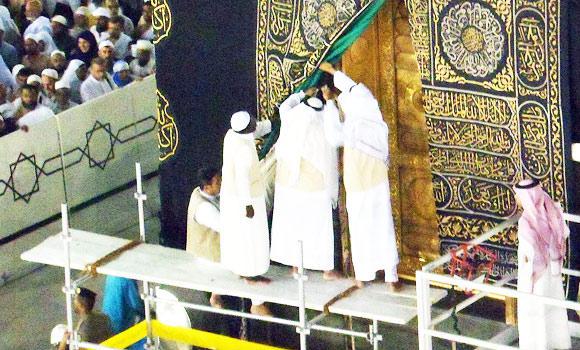
Makkah, Oct 1: The General Presidency of the Two Holy Mosques has announced that the lock of the Kaaba was changed after officials washing the Kaaba noticed it was rusty. The lock was made 30 years ago.
The new lock was handed to the senior “sadin,” the Kaaba’s key keeper, Shiekh Abdulqader Al-Shaibi.
The statement clarified the controversy over having the lock changed, which came at the request of the late senior Sadin Sheikh Abdul Aziz Al-Sheibi, the previous keeper of the Holy Kaaba’s door key. However, the new Kaaba’s key keeper said he should have been notified about the matter.
All affairs of the Kaaba, such as the washing, changing the Kiswaa, the lock or the other affairs are usually notified by the Royal Court to the sadin, and not the general presidency, through the governor of Makkah, said the senior sadin.
Sheikh Abdulqader Al-Sheibi said that Abdul Rahman Al-Sudais, head of the General Presidency of the Two Holy Mosques, inspected the new lock while the sadin was away.
“This sidelining of the role of the sadin is a violation of his lawful rights,” said the senior sadin.
Ahmad bin Muhammad Al-Mansouri, the spokesman of the General Presidency of the Two Holy Mosques, said a royal decree was issued in 2009 and was directed to King Abdulaziz City for Science and Technology (KACST) to conduct a technical study on the situation and that a group of scientists took the exact specifications of the key to the door of the Kaaba upon the request of the senior sadin who noticed that the key became rusty and does not work well. The new lock is made of 18-carat gold.
Mansouri said that the new key will be delivered to the sadin at the request of the Royal Court in compliance with the legal provisions on the affairs of the Two Holy Mosques.





Comments
Add new comment